
The United Nations Security Council (UNSC) is one of the six principal organs of the United Nations (UN) and is charged with ensuring international peace and security, recommending the admission of new UN members to the General Assembly, and approving any changes to the UN Charter. Its powers as outlined in the United Nations Charter include establishing peacekeeping operations, enacting international sanctions, and authorizing military action. The UNSC is the only UN body with authority to issue resolutions that are binding on member states.

The United Nations General Assembly is one of the six principal organs of the United Nations (UN), serving as its main deliberative, policymaking, and representative organ. Currently in its 79th session, its powers, composition, functions, and procedures are set out in Chapter IV of the United Nations Charter.
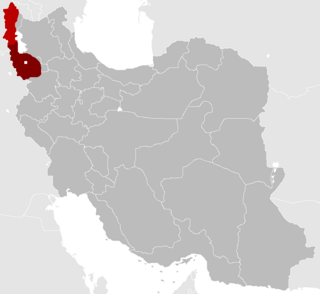
United Nations Security Council Resolution 2 was adopted unanimously by the United Nations Security Council on January 30, 1946. The Council urged Iran and the Soviet Union to resolve the crisis caused by the Soviet occupation of Iranian territory.
United Nations Security Council Resolution 58 was adopted on September 28, 1948. The Swiss Confederation had just joined the International Court of Justice (ICJ) but was not yet a member of the United Nations and the council was asked to make recommendations. The Council recommended that Switzerland and any other state that should find itself in this position be allowed to participate in all the elements of the General Assembly pertaining to the ICJ including the nomination of new members, elections, etc.
United Nations Security Council Resolution 94 was adopted on 29 May 1951. In the resolution, the Security Council noted with regret the death of International Court of Justice Judge José Philadelpho de Barros e Azevedo on 7 May 1951 and decided that the election to fill the vacancy would take place during the sixth session of the General Assembly. The Council further decided that this election should take place prior to the regular election which was to be held at the same session to fill the five vacancies which were to occur owing to the expiration on 5 February 1952 of the mandates of five of the ICJ's members.

United Nations Security Council Resolution 435, adopted on September 29, 1978, put forward proposals for a cease-fire and UN-supervised elections in South African-controlled South West Africa which ultimately led to the independence of Namibia. Importantly, it established the United Nations Transition Assistance Group (UNTAG) which oversaw the election and the South African withdrawal.

The presidency of the United Nations Security Council is responsible for leading the United Nations Security Council. It rotates among the 15 member-states of the council monthly. The head of the country's delegation is known as the President of the United Nations Security Council. The presidency has rotated every month since its establishment in 1946, and the president serves to coordinate actions of the council, decide policy disputes, and sometimes functions as a diplomat or intermediary between conflicting groups.

United Nations Security Council Resolution 1946, adopted unanimously on October 15, 2010, after recalling previous resolutions on the situation in Côte d'Ivoire, including resolutions 1880 (2009), 1893 (2009), 1911 (2010) and 1933 (2010), the Council extended sanctions against the country, including an arms embargo and ban on the trading of diamonds, for a further six months.
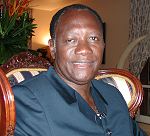
United Nations Security Council Resolution 1962, adopted unanimously on December 20, 2010, after recalling previous resolutions on the situation in Côte d'Ivoire, including resolutions 1893 (2009), 1911 (2010), 1924 (2010), 1933 (2010), 1942 (2010), 1946 (2010) and 1951 (2010), the Council extended the mandate of the United Nations Operation in Côte d'Ivoire (UNOCI) until June 30, 2011 and urged all Ivorian parties to respect the outcome of the presidential election and the recognition of Alassane Ouattara as president.
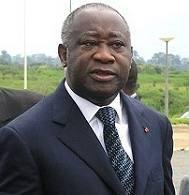
United Nations Security Council Resolution 1967, adopted unanimously on January 19, 2011, after recalling previous resolutions on the situation in Côte d'Ivoire, including resolutions 1933 (2010), 1942 (2010), 1946 (2010), 1951 (2010) and 1962 (2010), the Council increased the number of forces in the United Nations Operation in Côte d'Ivoire (UNOCI) by 2,000. It was the first Security Council resolution adopted in 2011.

United Nations Security Council Resolution 1968, adopted unanimously on February 16, 2011, after recalling previous resolutions on the situation in Côte d'Ivoire, including resolutions 1933 (2010), 1942 (2010), 1946 (2010), 1951 (2010), 1962 (2010) and 1967 (2011), the Council extended the deployment of troops from the United Nations Mission in Liberia (UNMIL) to the United Nations Operation in Côte d'Ivoire (UNOCI) for an additional three months.

The first ever United Nations Security Council elections were held on 12 January 1946 during the 1st session of the United Nations General Assembly, held at Westminster Central Hall in the City of Westminster, London, England, United Kingdom. The elections were for six non-permanent seats on the UN Security Council for two- and one-year mandates commencing immediately upon election, and to expire upon the date of the next elections, in November 1946 and September 1947, respectively.

United Nations Security Council Resolution 1980, adopted unanimously on April 28, 2011, after recalling previous resolutions on the situation in Côte d'Ivoire, including resolutions 1880 (2009), 1893 (2009), 1911 (2010), 1933 (2010), 1946 (2010), 1962 (2010) and 1975 (2011), the Council extended an arms embargo, ban on the trade of diamonds and targeted financial and travel sanctions on Ivorian officials until April 30, 2012.
United Nations Security Council Resolution 1981, adopted unanimously on May 13, 2011, after recalling previous resolutions on the situation in Côte d'Ivoire, including resolutions 1933 (2010), 1942 (2010), 1946 (2010), 1951 (2010), 1962 (2010), 1967 (2011), 1968 (2011), 1975 (2011) and 1980 (2011), the Council extended the mandate of the United Nations Operation in Côte d'Ivoire (UNOCI) until July 31, 2011 and extended the temporary re-deployment of United Nations troops from Liberia until June 30, 2011.
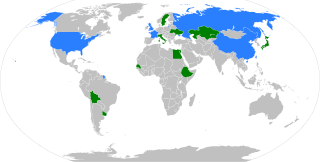
The 2016 United Nations Security Council election was held on 28 June during the 70th session of the United Nations General Assembly, held at United Nations Headquarters in New York City. The elections were for five non-permanent seats on the UN Security Council for two-year mandates commencing on 1 January 2017. In accordance with the Security Council's rotation rules, whereby the ten non-permanent UNSC seats rotate among the various regional blocs into which UN member states traditionally divide themselves for voting and representation purposes, the five available seats were allocated as follows:
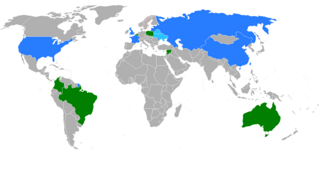
The second 1946 United Nations Security Council election was held on 19 November 1946 during the First session of the United Nations General Assembly. The General Assembly elected Belgium, Colombia, and Syria, as the three new non-permanent members of the UN Security Council for two-year mandates commencing in January 1947.
United Nations secretary-general selection is the process of selecting the next secretary-general of the United Nations. To be selected as secretary-general, a candidate must receive the votes of at least nine members of the United Nations Security Council, with no vetoes from permanent members. The secretary-general is then appointed by a majority vote of the United Nations General Assembly.

The president of the United Nations Economic and Social Council is the presiding officer of that body.












